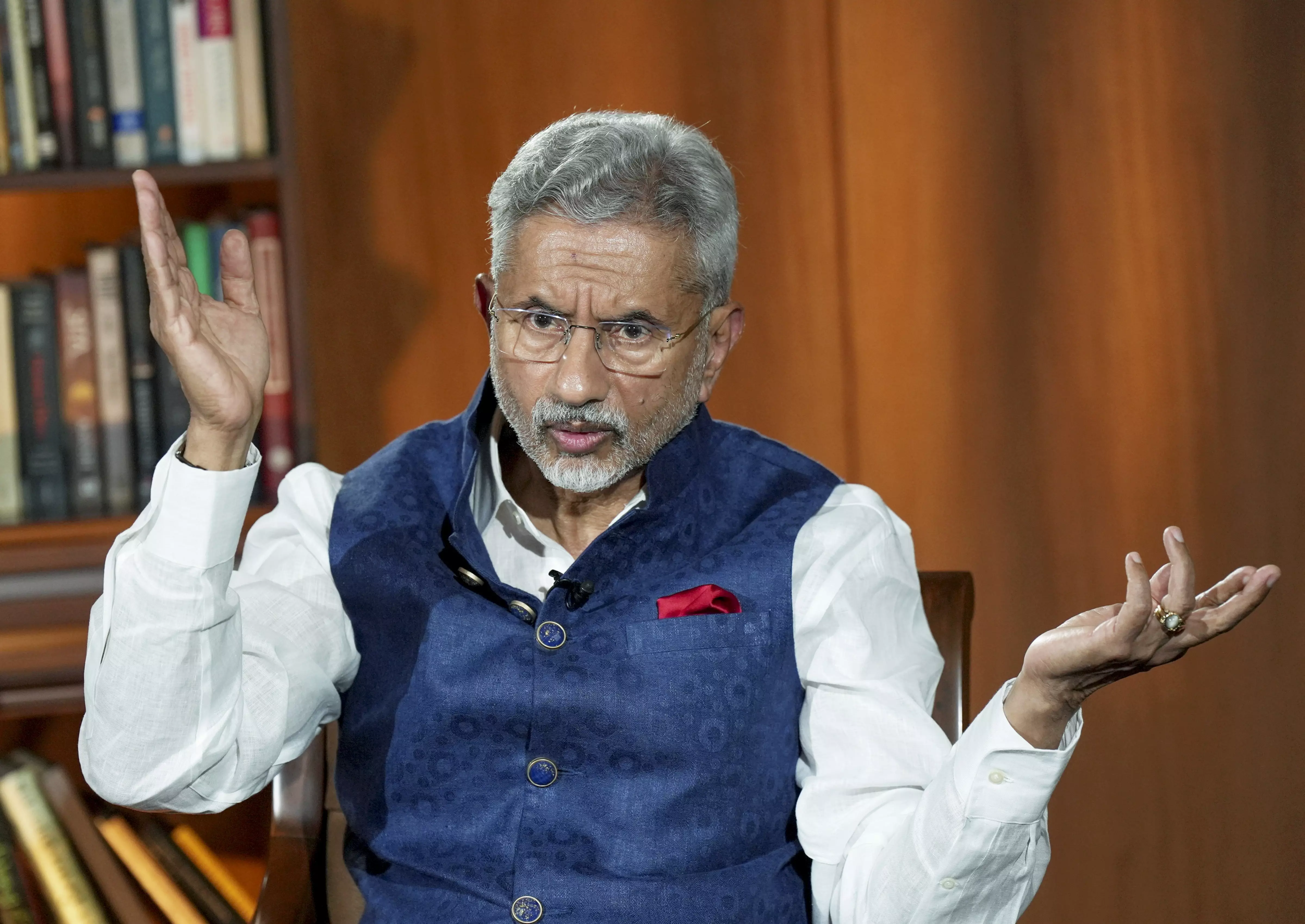
EAM Jaishankar blames neglect of economy for India’s border standoff with China
The foreign minister stressed the need to develop country’s manufacturing sector and improve overall economy to counter China’s rising global influence

Expressing hope that a resolution of the remaining issues with China, even as the eastern Ladakh military standoff entered its fifth year, External Affairs Minister S Jaishankar on Sunday (May 12) averred that a return to normal bilateral ties hinges on peace and tranquillity along the border.
He said the remaining issues mainly pertain to "patrolling rights" and "patrolling abilities".
Specifically asked when a resolution to the row can be expected in the backdrop of Prime Minister Narendra Modi's remarks to Newsweek magazine last month, Jaishankar said he only provided a "big picture" viewpoint on the issue. "I would not link it to the prime minister's interview per se. I think the prime minister was giving a big picture viewpoint and his big picture viewpoint was a very reasonable viewpoint which is – after all as neighbours, every country wants good relations with its neighbours," Jaishankar said.
That peace and tranquillity has been disturbed, however.
"But today, our relations with China are not normal because the peace and tranquillity in the border areas has been disturbed. So he (PM) was expressing the hope that the Chinese side should realise that the present situation is not in its own interest," the foreign minister said.
Peace along border essential to ties
Modi had said that the border situation needs to be addressed urgently and that stable and peaceful ties between India and China are important for not just the two countries but for the entire region and world.
Elaborating further, Jaishankar said diplomacy is a work of patience and India continues to discuss the issues with the Chinese side. "I would say that we need to resolve those issues if the relationship is to come back to normal," he said.
The Indian and Chinese militaries have been locked in a standoff since May 2020 and a full resolution of the border row has not yet been achieved though the two sides have disengaged from a number of friction points.
Yet, trade with China rising
India has been consistently maintaining that peace and tranquillity along the LAC were key for normalisation of overall ties.
Even though the stand-off between the two neighbours is far from ebbing, trade between them has increased exponentially.
Asked why bilateral trade volume with China is going up when New Delhi has been insisting that the ties cannot be normal when the border situation is abnormal, Jaishankar suggested attributes it to the manufacturing sector not given adequate attention before 2014.
"I think it is common sense that If there is no peace and tranquillity in the border, how can you have a normal relationship," he said. "After all If somebody is at your front door in an unfriendly manner, you are not going to go out there and act as though everything is normal. That to me is a straightforward proposition," the minister added.
Neglect of manufacturing sector
Emphasising that the neglect of manufacturing sector in the past has created the problem as it has left the country’s economy laggard vis-à-vis China, Jaishankar said boosting India's domestic manufacturing and the overall economy will provide much more resources in its foreign policy toolkit to expand the country's influence globally and compete with China on the economic front.
India under the leadership of Prime Minister Narendra Modi has been focusing on enhancing domestic manufacturing in the last 10 years as there was a neglect of the sector before 2014 and it created many problems for the country, he said.
He also suggested that lack of focus in the past to the manufacturing sector is linked to the upward trajectory in India-China trade notwithstanding New Delhi's position that normalisation of ties with Beijing is dependent on the resolution of the eastern Ladakh border row.
India has to compete with China globally
"We need to be confident. I am clear that international politics, international relations are competitive. I have a neighbour like China. I have to learn to compete," he said.
"By my complaining, China is not going to stop doing things. If I do not build up my strength at home, our foreign policy will be as good as our domestic policy," Jaishankar said.
"It is a function of our domestic policy that if I can actually build up my economy, if I can build up my manufacturing, if I can create the kind of capabilities which today I am trying to do, I think you are going to find foreign policy has much more resources and much more tool in its toolkit to actually influence the world," he added.
His response came when asked why India's bilateral trade volume with China is going up when New Delhi has been insisting that ties cannot be normal if the border situation is abnormal.
The ties between the two countries nosedived significantly following the fierce clash in the Galwan Valley in June 2020 that marked the most serious military conflict between the two sides in decades.
In the diplomatic and military talks with China, the Indian negotiators have been insisting on restoring the status quo ante of April 2020 along the Line of Actual Control (LAC) in eastern Ladakh.
(With agency inputs)

